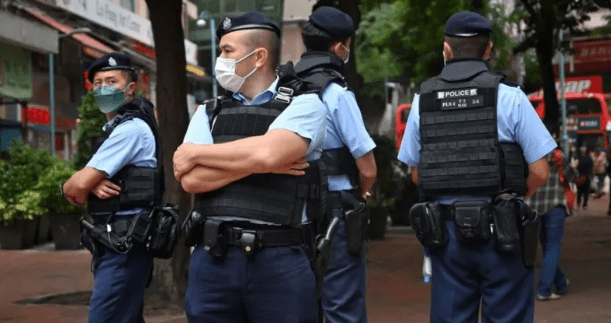Article 23: What is the new, strict security law of Hong Kong?
Hong Kong has introduced a new security law that the government says is necessary for stability, but has raised fears that civil liberties will be further eroded.
The law, called Article 23, covers treason, sedition and state secrets, and allows for trials to be held behind closed doors.
What is Article 23 and how does it change Hong Kong security laws?
Hong Kong’s leader, John Lee, signed the law into force on 23 March.
He has said it is necessary to guard against “potential sabotage and undercurrents that try to create troubles”.
China’s Vice Premier Ding Xuexiang has said it would protect “core national interests” and allow Hong Kong to focus on economic development.
Article 23 allows for closed-door trials and gives the police rights to detain suspects for up to 16 days without charge.
Organisations and companies can be banned from operating in Hong Kong, should they be found “working for foreign forces”.
Article 23 expands on the Beijing-imposed national security law, which already criminalises secession, subversion, terrorism and collusion with foreign forces. Other offences it covers include:
Theft of state secrets and espionage:The law has a broad definition of “state secrets”. It includes “major policy decisions”, “economic or social development” and Hong Kong’s “external affairs”, among other things. The wording in this section of the law is almost identical to China’s state secrets law, which Beijing is looking to broaden.
Sabotage endangering national security: This is a new offence that targets people who endanger national security either intentionally or by “being reckless”. It also wants to criminalise computer-related acts that harm national security. Doxxing – the malicious act of publishing people’s personal information online – of police officers was cited in the consultation paper as a possible example of such an offence.
External interference: This new offence targets acts of collaborating with “external forces” to influence or interfere with national and local authorities. Examples include receiving financial support or direction from these “external forces”, which could include foreign governments, political organisations or individuals.
Insurrection: This targets acts such as assisting an armed force – or the organisation to which the force belongs – in an armed conflict against China. Authorities have repeatedly cited unrest due to the months-long pro-democracy protests in 2019 as grounds for legislating this new offence.
Treason: In addition to treason, which includes offences such as levying war against China, the new law seeks to criminalise unauthorised military drilling and “misprision of treason”, committed by someone who has knowledge of treason but does not report it.
Those found guilty of treason, insurrection, inciting a member of the Chinese army to mutiny, or colluding with an external force to damage or weaken public infrastructure could be sentenced to life imprisonment.
What are the criticisms of Article 23?
Hong Kong officials have justified Article 23 by saying that most offences outlined in the legislation are also covered under similar laws in Western nations.
However, critics say the new law gives authorities yet another tool to crack down on dissidents and erode freedoms promised to the former British colony when it returned to Chinese rule in 1997.
Article 23 will “take repression to the next level”, said Amnesty International’s China Director Sarah Brooks.
“The rapid progression of legislation under Article 23 shows the government’s eagerness to further dismantle human rights protection and turn its back on its international obligations,” she said.
Hong Kong’s year under China’s controversial law
The Hong Kong slogan that will land you in jail
The political motivation behind the new law appears to be “more important than any practical need”, said Eric Lai, research fellow at the Georgetown Center for Asian Law.
“The current Beijing-imposed national security law has already silenced dissent and the voices of civil society. Hong Kong has also not seen any large-scale demonstrations in the past three-and-a-half years,” he told BBC Chinese.
The national security law was imposed by Beijing in 2020. Authorities credit it with restoring stability in the city after widespread pro-democracy protests in 2019. At least 260 people have already been arrested under the NSL, which critics say reduced the city’s autonomy.
There are also fears that Article 23 may reduce Hong Kong’s attractiveness as a hub for international business.
Are Hong Kong’s days as a global business hub over?
How long has Hong Kong’s Article 23 been planned?
For decades.
An attempt to pass the bill back in 2003 was shelved after massive protests.
Half a million Hongkongers came out onto the streets and more than 90,000 submissions were made during a three-month consultation.
Then-chief executive Tung Chee-hwa’s administration withdraw the legislation and the strong opposition also saw the resignation of security minister Regina Ip.
The government claims the decision to introduce Article 23 in 2024 follows a 99% support rate during the latest public consultation.











